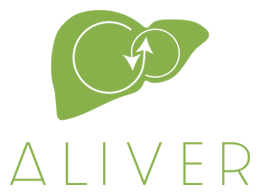London 24 July 2017
The first patient in an international trial of a new liver dialysis system has been recruited at the Royal Free Hospital in London. The device, called DIALIVE, was invented by scientists and doctors at University College London (UCL) and Royal Free London NHS Foundation Trust. The principles behind DIALIVE are based on recent advances in the understanding of the mechanisms underlying liver failure, a condition that affects about 200,000-300,000 people every year across Europe. This patient group treated in the trial has a greater than 25% likelihood of death within a 28-day period if they do not undergo a liver transplant.[i]
Twenty-four patients will be included in this first trial, which is aimed at establishing DIALIVE’s safety and performance. It is being conducted at seven centers across Europe: London, Birmingham, Nottingham, and Edinburgh in the UK, Rostock in Germany, Paris, France, and Madrid, Spain. A second trial that plans to enroll more than 100 patients across Europe is already being designed. That study is scheduled to begin in 2018 and will include patients at another 18 widely distributed European referral hospitals for liver diseases that are part of the European Foundation for the Study of Chronic Liver Failure (EF-Clif) consortium of hospitals.
“Many patients with liver failure are relatively well until the time they present to the hospital”: said Professor Rajiv Jalan, the Coordinator of the ALIVER project and an inventor of DIALIVE at UCL. “Within a matter of 28-days, about 25% of these patients will die with multi organ failure. Given the huge regeneration potential of the liver, many can recover,” he said. “DIALIVE removes toxins that accumulate in liver failure to prevent inflammation. It has the potential to allow the liver to regenerate.”
Prof Jalan added: “The Horizon 2020 EU grant and the collaboration with the leaders in the field will allow us to further develop DIALIVE for benefit of liver failure patients”.
Dr Banwari Agarwal, who is a Consultant Intensivist at Royal Free Hospital is the Chief Investigator for the trial.
Today’s standard of care for this patient group is multi-organ support in the intensive care unit. Many patients require a liver transplant, though the shortage of donor organs means this is often not possible. There are currently over 5000 liver transplants per year in Europe, more than 1,500 patients are on the Eurotransplant waiting list for a new liver, and many more in other countries of the EU who are not members of the Eurotransplant network[ii].
The 24-patient ALIVER study is funded by a €6.4 million EU Horizon 2020 grant 733057, awarded to a consortium of 11 institutions from seven countries in Europe, including Yaqrit Ltd, a spinout company from University College London that is developing the DIALIVE device and IBM Ireland Ltd, which will be applying data analytics to identify new biomarkers that can help to optimise treatment protocols.
The DIALIVE device was invented at UCL and is based on the principle that bacterial products (toxins) from the gut enter the blood in patients with liver disease, and trigger a damaging immunological and inflammatory response. DIALIVE is designed to remove these toxins from the blood and replace damaged blood albumin with fresh albumin to increase the body’s natural defenses against bacterial toxins allowing the liver to regenerate. If the results show a successful outcome, Yaqrit Ltd. will seek regulatory approval for DIALIVE in 2019/20.
###
Contact
For more information, please contact:
Professor Rajiv Jalan (UCL); Coordinator of the EU H2020 grant.
Email: r.jalan@ucl.ac.uk
[i] Acute-on-Chronic Liver Failure Is a Distinct Syndrome That Develops in Patients With Acute Decompensation of Cirrhosis Moreau, Richard et al. Gastroenterology , Volume 144 , Issue 7 , 1426 -1437.e9
[ii] Eurotransplant data base. Available at: http://statistics.eurotransplant.org/index.php?search_type=waiting+list&search_organ=liver&search_region=by+country&search_period=2017. Last accessed 31 March 2017.





